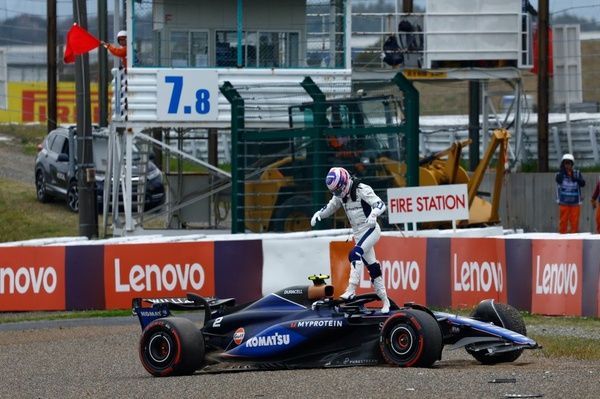Insight: The Williams F1 team's financial gamble is paying off
Judging from its financial report, the Williams Formula 1 team's plan is working

After close to a decade of abject misery, it took a punt in 2013 and decided to invest heavily in its F1 operation for '14.
It knew that would likely lead to increased losses for the year but the potential rewards were great.
Fast forward to 2016 and the outlook for the independent team has not looked so good since its championship-winning heyday in the last century.
Two third-place finishes in the constructors' championship have attracted sponsors and boosted its share of F1's revenues.
After a £31.5million loss in 2014, the F1 team has reported a £0.2million (EBITDA) profit and CEO Mike O'Driscoll says it has "the foundation in place for improvements".
Part of that foundation is the Advanced Engineering division, which saw its profit rise by £0.6million to £2.1million this year.
Its core business is automotive and motorsport but it has expanded to include aerospace and defence as a way of supporting the F1 programme financially.
According to O'Driscoll, the two new areas are "less cyclical and the contracts are longer" so that provides stability for the business.
And it's a business that is growing, with an order book three times larger than at this point last year.
The concern is that this part of the business will limit the F1 team's success. Premier League side Arsenal, for example, has long said that it wants to compete on the back of hard work and generating revenue itself without the need for backers.
That has resulted in regular year-end profits and consistency in the league but in terms of silverware it only has a couple of FA Cups to show for the last decade.
Williams, though, is adamant the team can succeed with its current model and that F1 remains its primary focus.
"It's important we retain F1 at our core," says deputy team principal Claire Williams. "It's what we do, it's why we are in business.
"The Advanced Engineering side of the group was set up to support us times of economic struggles, to support the racing team and also to diversify the business.
In 2011, Williams took the decision to drop Nico Hulkenberg and replace him with GP2 champion Pastor Maldonado and the hefty sponsorship portfolio he brought with him from Venezuelan oil company PDVSA.
It was easy to criticise that call. Many did. But it was either that or lay off staff and risk the long-term future of the team.
It has paid off and having a 'pay driver' is no longer a requirement. With the team's financial stability and recent success, Williams does not see any reason why that should change in the future - though she doesn't rule out taking a quick driver who brings money.
"Getting two cars as high up the finishing order week in, week out is always going to be absolute priority because of our independent status," she said.
"But I don't think it's as black and white as being able to say one thing or another.
"For next year, there are going to be a lot of options for everybody. There will be opportunities for us as a team based on many considerations.
"Is there anything wrong with taking a driver who has talent and money?
"[Fernando] Alonso brings money. Does anyone criticise a team that takes Alonso? Everyone just looks at the fact it's Alonso.
"F1 drivers have brought money into F1 for years but it's only certain drivers where it's seen as a criticism."
To ensure its upturn in form, Williams has focused on consolidation. In turn that has made it more risk averse in a bid to ensure consistency and this has drifted into its decision-making on track, which has drawn criticism.
But while it has not tasted victory since the 2012 Spanish Grand Prix, Williams has re-established itself as one of the top three teams. That has brought an increase in commercial revenues - it will earn £87million this year, a six per cent rise - and that in turn strengthens its foundations for the future.
So for now, Williams has no plans to deviate from its approach.
"When you are trying to transform a business from where we were in 2013, having gone through a period of decline for a decade almost, you have to be risk averse as you are consolidating," said Williams.
"As an independent team, the constructors' championship is important because it determines prize money so that has always got to be priority. If that means we're 'risk averse', I don't mind that accusation."
Be part of the Autosport community
Join the conversationShare Or Save This Story
Subscribe and access Autosport.com with your ad-blocker.
From Formula 1 to MotoGP we report straight from the paddock because we love our sport, just like you. In order to keep delivering our expert journalism, our website uses advertising. Still, we want to give you the opportunity to enjoy an ad-free and tracker-free website and to continue using your adblocker.


















Top Comments